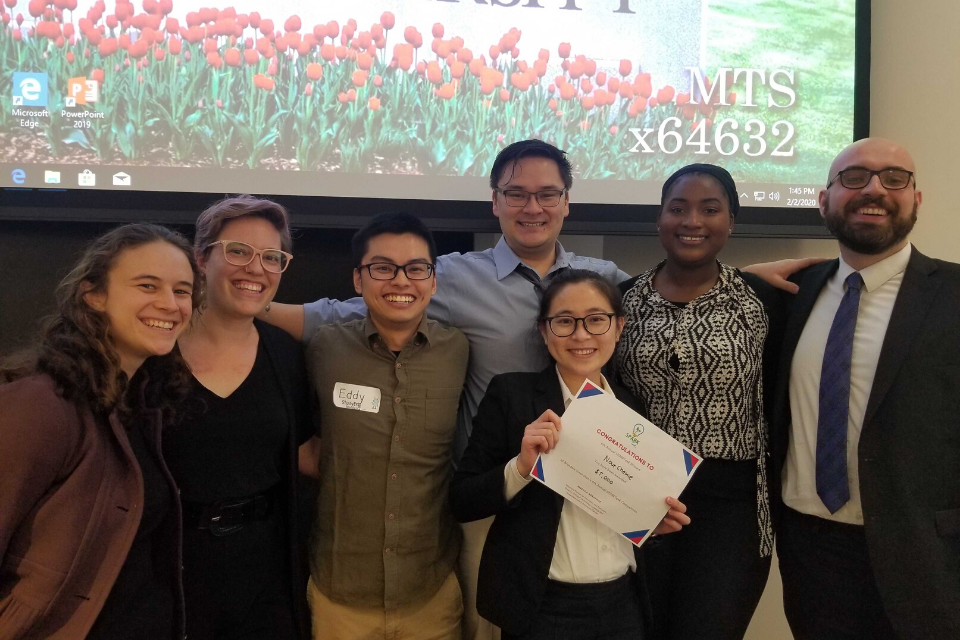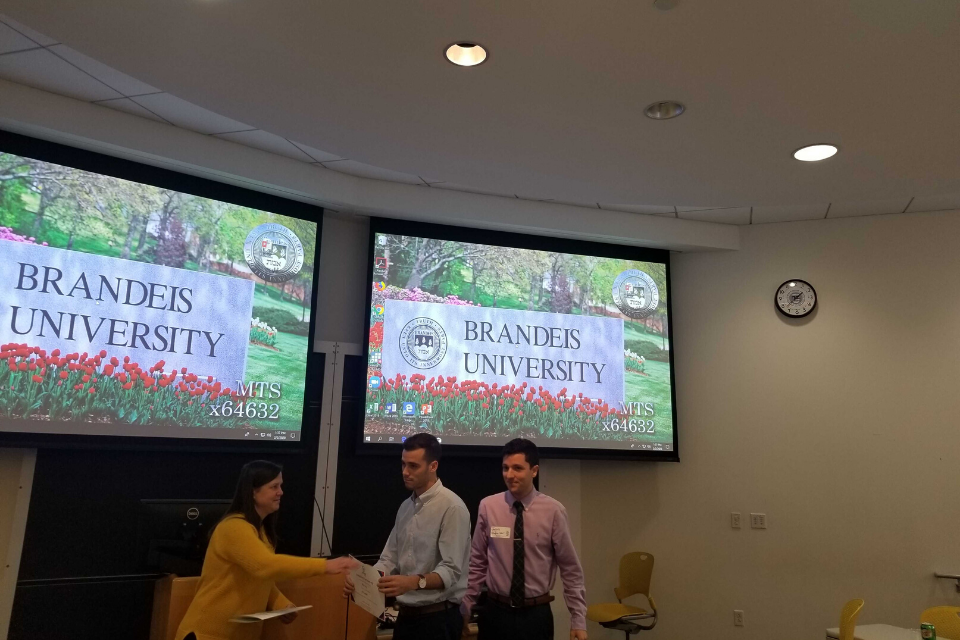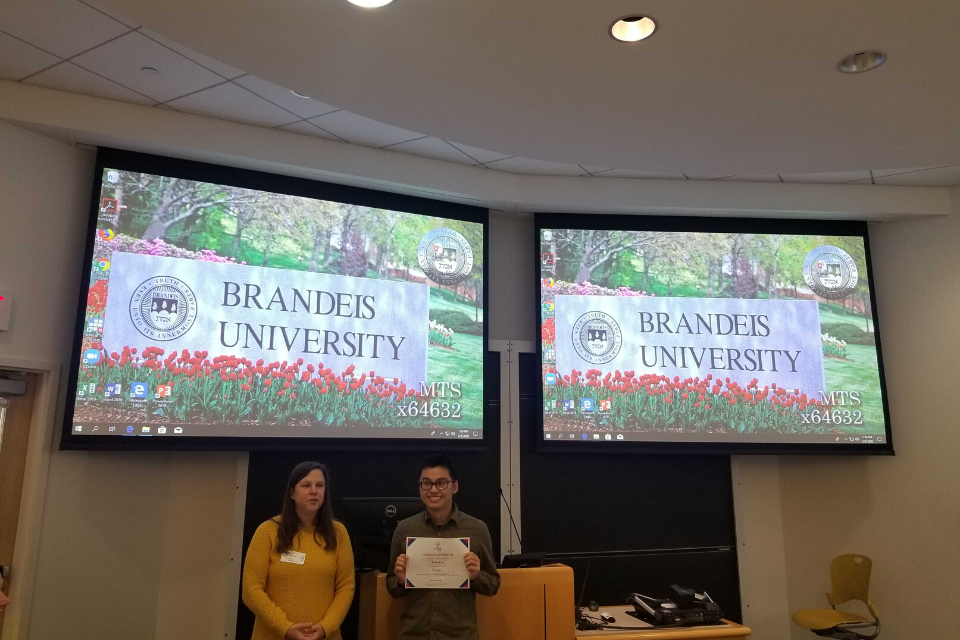SparkTank 2020
February 2, 2020--an eventful date in the US. It was SuperBowl Sunday, a day when some of the best teams face off to win recognition on the playing field. It was also Groundhog Day, which might mean learning how long winter lasts, or it might mean a day that keeps repeating, if you’re a movie fan. Here at Brandeis, it was also the morning for the 6th annual SparkTank pitch competition, where Brandeis students, faculty and staff face off to win grants from a pool of $50,000 in funding, as well as the mentorship, support and training they need to grow their ideas from concept to potentially successful enterprises. If there was any sense of deja vu, it was the return of Brandeis’ special brand of innovative energy, one that harnesses the interdisciplinary nature of Brandeis academics to build startups that solve social challenges with approaches that are not limited by conventional industry barriers.
This year’s teams addressed both big problems and everyday opportunities. Some tackle global crises such as climate change. Others address major issues specific to the US, such as healthcare. Many addressed local issues from different regions around the globe, with apps offering regional solutions for greater access to social needs such as mental health services and education. And some apps were smaller in scope, but universal in applications, providing better ways for us all to manage everyday tasks from getting a haircut to exercising.
Speaking of energy, many of the startups this year engaged with climate change with multi-sector solutions that provided benefits across the global supply chain. Another big focus this year were mental health and education access, which saw four startups aimed at improving student outcomes through individualized learning or mental health interventions, or both. “Diverse though Spark startups are, they often cluster around key issues globally and locally,” says Associate Provost for Innovation Rebecca Menapace. “They all bring their own solutions to the table, which is part of what makes the Spark program so valuable; we often see a wide range of approaches to big challenges, which, in turn, allows for greater cross-pollination of ideas to effect meaningful change.”
Whether trying to bring renewable energy to a specific region in Africa or trying to help college students around the world learn better, all the startups brought a uniquely Brandesian combination of commitment to making the world a better place paired with practical problem-solving:
- Claster aims to make peer tutoring more standardized and thus more efficient. By matching students in need of help with fellow undergraduates who have already taken the specific course in which they are struggling, Claster goes beyond academic support by giving students the inside track on professors’ standards, class atmosphere, and other less-tangible aspects of the course experience.
- ECOnscious combines the best of re-usable drinkware and loyalty cards with an etched re-usable straw that has your loyalty program ID right on the straw, ensuring consumers never forget to re-use and reduce.
- AlgaViva turns red seaweed, a sustainable crop that promises fair trade opportunities to Latin American and Caribbean fishing communities, into a dietary supplement for dairy cows in the US. This dietary add-on reduces herds’ carbon emissions, creating sustainability impacts both for producers and consumers of the feed ingredient.
Grand prize winners NourChemie also addresses the fishing industry and agritech with a biogas solution. Transforming byproducts from fisheries and olive oil production into biogas, the company aims to pilot their program in Tunisia with a public-private partnership. Other winners of the day included:
- Claster,the peer tutoring platform
- UniSelfCare, an app that connects college students with self-care options and encourages healthy activities
- Beacon, which provides Chinese International Students with mental health care
- Alga Viva, the sustainable farming initiative
- Polify, an app which helps clarify confusing health insurance policies for graduate students
- Study Eng, which aims to help lower-income students in Indonesia gain access to ESL learning with the goal of higher TOEFL scores.
One team was selected to proceed directly to the pitch round of Masschallenge, one of the world’s largest startup accelerators, with which Brandeis’ Hassenfeld Family Innovation Center has a longstanding relationship. Arduino Helper, a tool to assist programmers working in the popular electronic prototyping platform for robotics and other high-tech applications, won the coveted spot. Returning judges were Sean C. Rush, a veteran entrepreneur with strong social-impact experience, and Janis Collins, founder of the accelerator The Refinery, which funds woman-led startups. The competition welcomed 2 new judges, private equity investor Jack Swartz and Rajnish Kaushik from UMASS Lowell’s Office of Technology and Commercialization.
Once again, Brandeis innovators from all schools and disciplines impressed industry judges with their creativity, bold visions, and commitment to a better world.


